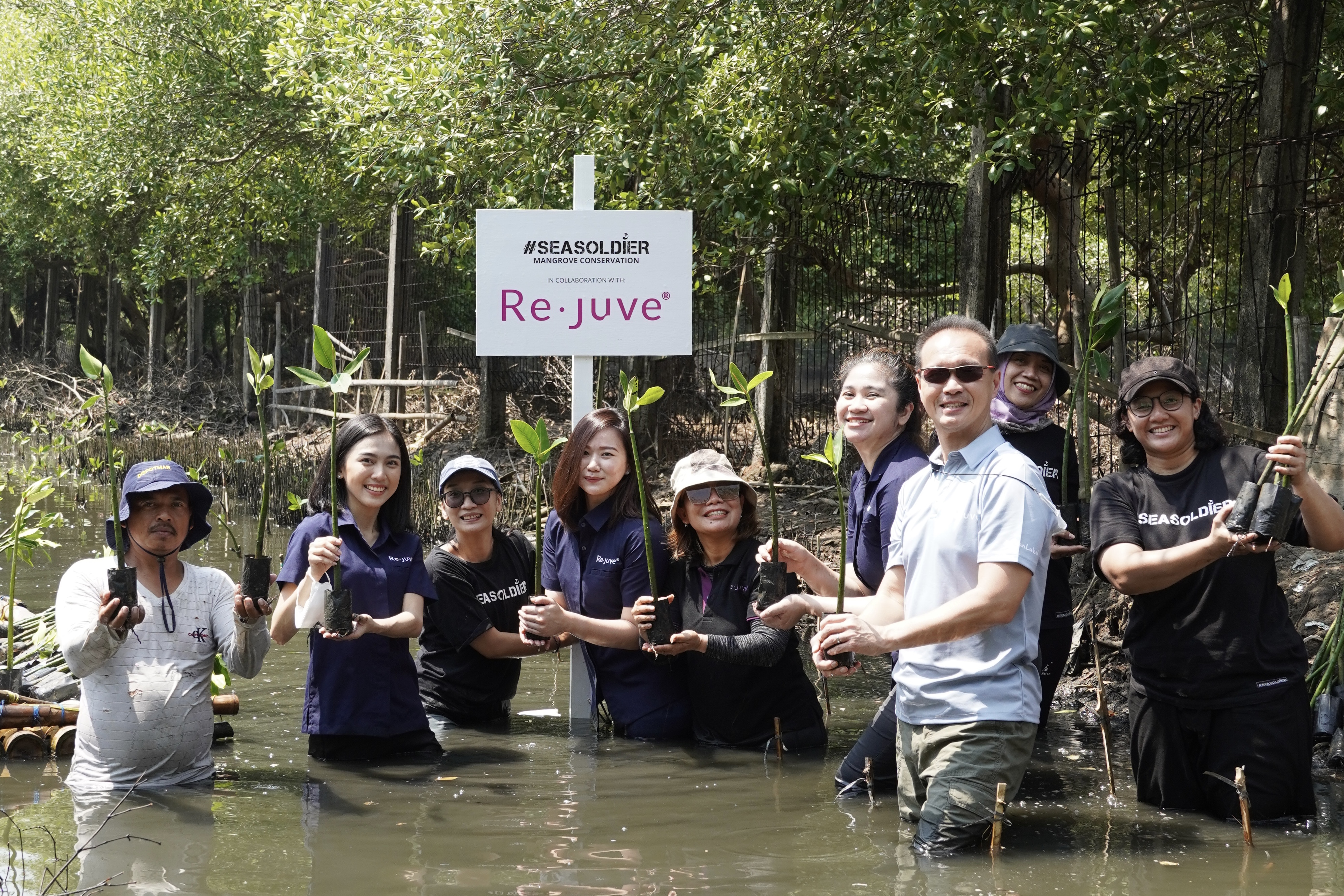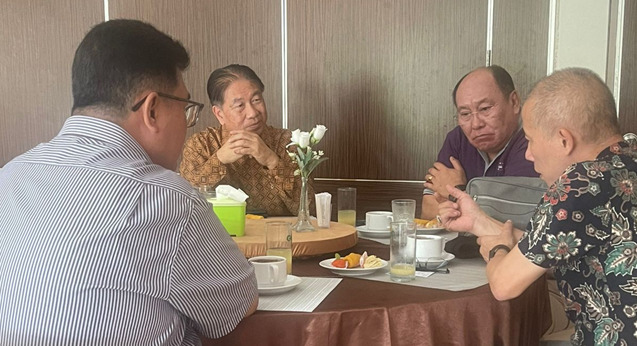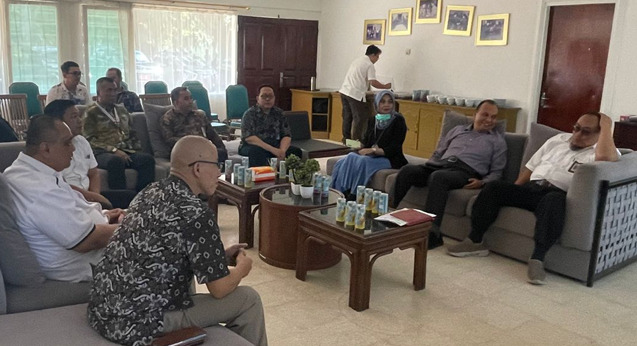Jakarta, September 15, 2022 – Continuing its sustainability commitment through the “Giving Back #GOODforEarth” campaign, PT Sewu Segar Primatama, under the Re.juve trademark, successfully planted 2,500 mangrove seedlings across four locations: Tanjung Pasir (Tangerang), North Sulawesi, Bali, and Tegal.
This initiative reflects Re.juve’s belief that humans are deeply dependent on nature and therefore carry the responsibility to protect and preserve it. The program is part of Re.juve’s mangrove conservation efforts aimed at restoring ecosystems, reducing carbon emissions, and supporting sustainable development.
The 2,500 seedlings were funded through donations collected from April 23 to May 26, 2022, where IDR 1,000 was set aside for every 435 ml Re.juve bottle sold across its outlets in Indonesia, including Jabodetabek, Bandung, Semarang, Surabaya, Solo, Bali, Malang, and Palembang.
“We planted 750 seedlings in Tanjung Pasir, Tangerang, as part of the total 2,500 seedlings planted in four different regions. #GOODforEarth is not only our contribution to nature, but also a joyful experience in giving back,” said Richard Anthony, CEO & President Director of Re.juve.
Mangroves provide significant benefits: protecting coastlines from abrasion, serving as habitats for marine biodiversity, supporting food chains, absorbing CO₂, producing oxygen, and offering economic value. Research shows that one hectare of dense mangrove forest can absorb 52.85 tons of CO₂ annually—equivalent to neutralizing the emissions of around 500 cars in Jakarta for one year.
Dinni Septianingrum, Chief Operating Officer of Seasoldier, a local environmental community supporting the program, emphasized the importance of raising awareness and empowering local communities.
“By planting in different regions, we not only restore ecosystems but also inspire other communities in similar areas to take action,” said Dinni.
Richard Anthony concluded by expressing hope that more companies will join in:
“Re.juve may still be a growing company, but through initiatives like this, we aim to inspire both large and small enterprises to take meaningful steps in protecting nature.”



